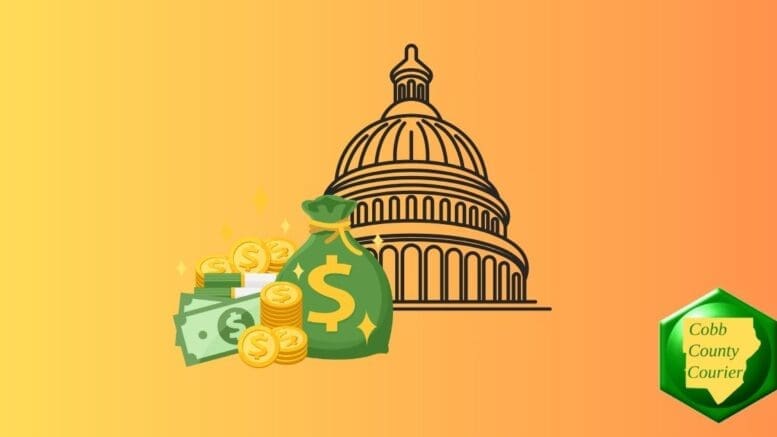By John A. Tures, Professor of Political Science, LaGrange College
Former Kansas City All-Star Second Baseman Frank White, now the Jackson County Executive, seems like an unlikely target for a dark money campaign. But that’s what has happened recently, as dark money groups, which can raise unlimited funds, don’t have to disclose their donors. And it’s not just national politics and presidential races where the wealthy have an outsized voice in politics. It’s coming to your county as well, if it hasn’t already happened. But as with baseball, there’s always hope for a big rally for the home team.
Ilana Arougheti with the Kansas City Star reported earlier this month that those pushing for a recall of White reached enough signatures to bring the measure to a ballot vote. As the signatures are being verified, nobody has yet noted the irony that those who signed the petition had to be publicly disclosed and verified, but those who raised the funds for the recall could stay more anonymous than a Single A Minor League Baseball player who is cut on a slow Tuesday.
An earlier Kansas City Star article written by Mike Hendricks and Kacen Bayless found that the groups pushing to oust White, who won with 55 percent of the vote in his last election, are yet another example of dark money. In other words, nobody officially knows who paid for all of the red and white “Recall Frank White” signs, as well as those who worked to gather the signatures for the recall effort.
“A mysterious new group with possible ties to the construction industry called Democracy in Action has stepped in to run a year-old grassroots recall campaign that had stalled until recently.” Hendricks and Bayless write. “For the first time, people were paid to collect signatures at polling places during this month’s general election. Democracy in Action footed the bill and now aims to make a big push between now and the January deadline for putting White’s recall up for a vote on the April ballot…Some of White’s most vocal opponents have said that even they do not know much about Democracy in Action or who is behind it.”
Even some Republicans quoted found dark money groups, a 501(c)(4) to be a little sketchy, in their own words, according to the reporters. Hendricks and Bayless found out more about the group by following family and marriage links, not campaign disclosures, which the law allows to be anonymous, so that even the GOP doesn’t know who the group is. The policies they attack White for on property values are state law mandates, not even local laws.
Writing for The Silicon Valley Voice, Carolyn Schuk documents how dark money has come to dominate Santa Clara politics. “Santa Clara’s dark money ordinance (Article X of the city charter) imposes disclosure requirements on “organizations that have historically refused to disclose contributions (‘dark money’).” These groups are organizations covered by IRS regulations 501(c)(1) through 501 (c)(10), and include trade, religious, educational groups and organizations “operating for purposes other than making contributions or expenditures.” These groups don’t have to report their donors to the IRS if they receive less than $50,000 in donations.” Yet these dark money groups drop $8,000 here, or tens of thousands here, just to get under the disclosure requirements, but still make an impact.
Stan Nguyen Oklobdzija of Tulane University of Louisiana wrote “My research shows that dark money networks – “dark parties” as I call them – promote far more extreme candidates than the traditional political parties and their allies, especially in the primary elections. Dark parties are also involved in far more races than traditional party organizations. Consequently, extremist primary candidates who otherwise lack resources to mount a serious bid for office now have secret money to build their standing among voters and tear down opponents.
Writing in the Scholars Strategy Network, Stan Nguyen Oklobdzija adds “As national reforms stall, several states have demonstrated that subnational reforms can indeed force secretive groups to abide by the same transparency standards that apply to all other political donors. California recently passed legislation that requires political ads to list their largest contributors; and Arizonans are currently in a legal fight to get a disclosure measure onto the ballot. Several cities, such as Denver, Santa Fe and Tempe, Arizona have passed laws that limit the ability of dark money groups to intervene in city politics.”
John A. Tures is a professor of political science at LaGrange College in LaGrange, Georgia. His views are his own. He can be reached at jtures@lagrange.edu. His “X” account is JohnTures2.
